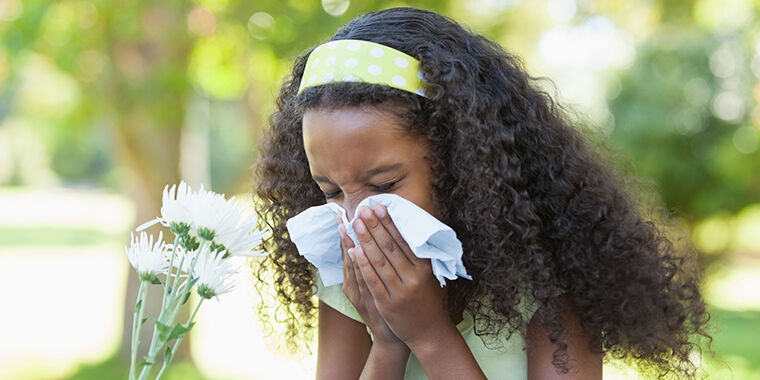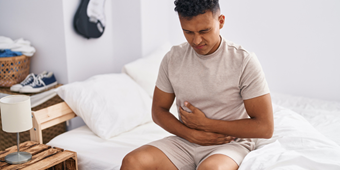Dayton’s Allergy Ranking Drops, But Keep Your Guard Up

Answer a few questions and we'll provide you with a list of primary care providers that best fit your needs.
Dayton consistently ranks high among U.S. cities hit by the sniffles, sneezes, and watery eyes of seasonal pollen allergies.
But Dayton took a significant slide in the standings in the Asthma and Allergy Foundation of America’s 2023 Allergy Capital report, which covers 2022 data. Down from our region’s familiar spot in the top 15, the new report has us at No. 88 out of 100 cities. (For you bracket watchers, Wichita, Kansas, ended up at No. 1.)
What explains this fall on the list and what can you do if you’re bothered by pollen this spring?
Family physician Elizabeth Barrett, DO, told Premier Health Now that she speculates that our region’s pollen counts haven’t improved, so much as seasonal allergy conditions have worsened in other cities.
“Generally, our winters across the country are more mild. We’re getting warmer temperatures. I’m curious if that’s making allergies worse in other areas.”
Among her patients, Dr. Barrett says, “I haven’t seen anything appreciably different than in other years.” Just the usual symptoms:
- Nose. Discharge, runny nose, sinus congestion, sneezing
- Eyes. Itchiness, redness, watering, and “gritty feeling”
- Ears and throat. Popping and itching of ears or sore throat
Ways To Lessen Exposure To Seasonal Allergens
If you’re a seasonal allergy sufferer, the key to making life more tolerable is to know your allergy triggers and avoid them, Dr. Barrett advises.
“The more aware you are, the more you can avoid the triggers or appropriately combat them. If you have pollen allergies, avoid outdoor activities when pollen counts are high.” (Most TV weather forecasts include pollen counts.)
And be aware, she says, “anytime you have a big rainstorm, you see huge pollen increases.” And wind stirs up pollen in the air.
She recommends:
- Take a shower after going outside
- Wash your clothes after wearing them outdoors
- Change bed sheets regularly (this is recommended for outdoor allergies and year-round indoor allergies caused by allergens like dust mites)
- Avoid yardwork on high pollen count days
- Keep your windows closed and use air conditioning when pollen counts are high
- Use a HEPA (high efficiency particulate air) air purifier or HEPA filter on your HVAC system to remove dust, pollen, mold, bacteria, and other airborne particles from the air in your home
Medications To Treat Seasonal Allergy Symptoms
On top of these precautions, you can use medications to treat seasonal allergy symptoms.
To relieve allergy symptoms in eyes, she recommends using lubricating saline eye drops or antihistamine eye drops. Avoid eye drops advertised for redness relief as they do not relieve allergy symptoms and can irritate the eyes, Dr. Barrett says.
For nasal or sinus symptoms, saline rinses can clear pollen and other allergens from the nasal passage.
Dr. Barrett recommends steroid nasal sprays (such as Flonase and Nasacort) as “first-line medications” for relieving seasonal allergy symptoms. They’re more effective in relieving most symptoms and have fewer side effects than oral antihistamines like Claritin, Allegra, and Zyrtec.
But if you don’t get relief from a nasal spray, she said take an oral antihistamine also.
Answer a few questions and we'll provide you with a list of primary care providers that best fit your needs.
Sources: Elizabeth Barrett, DO, Premier Health Primary Care - Beavercreek; Asthma and Allergy Foundation of America





